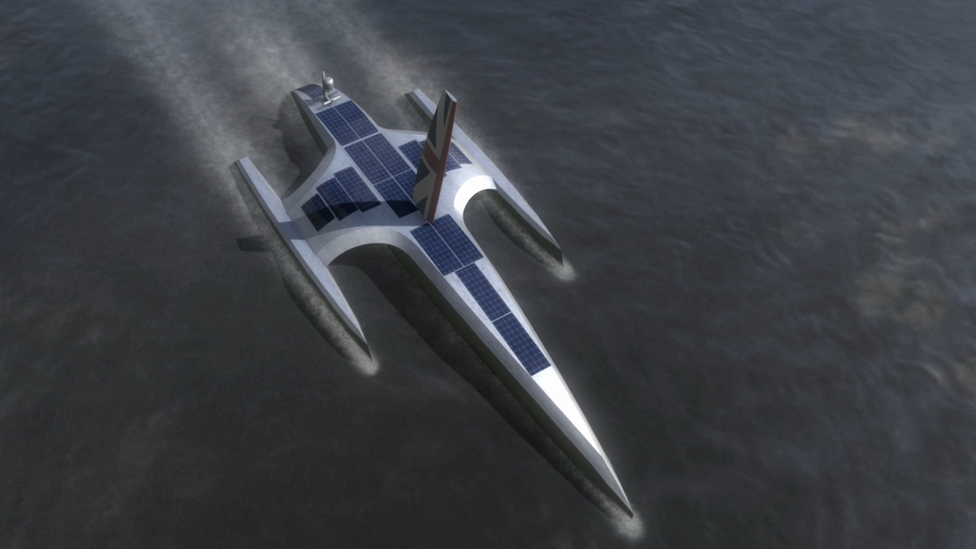AI-driven robot Mayflower begins Atlantic voyage
- Published
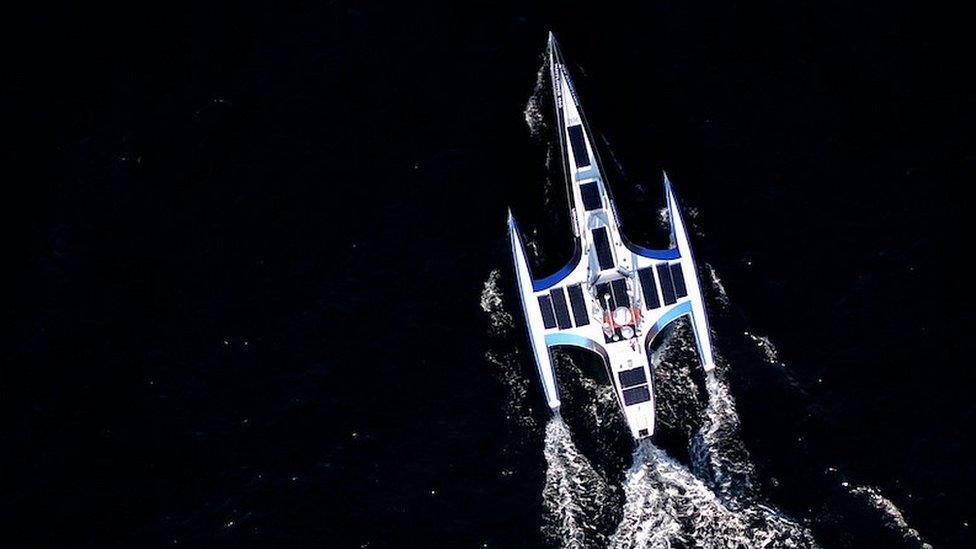
The voyage of the Mayflower Autonomous Ship is expected to take about three weeks
A crewless ship designed to recreate the Mayflower's historic journey across the Atlantic 400 years ago has begun its ocean crossing.
The Mayflower Autonomous Ship (MAS) has set sail on a 3,500 mile (5,630km) journey from Plymouth in the UK to Massachusetts in the US.
The voyage was expected to take about three weeks, project leaders said.
It will also conduct experiments on its journey, collecting data on marine life and sampling for plastic waste.
The journey of the MAS, created by non-profit ocean research company ProMare and computing giant IBM, is part of the official Mayflower 400 commemorations.
It was created to show the development of technology in the centuries since the Pilgrim Fathers set sail for the New World, bosses said.
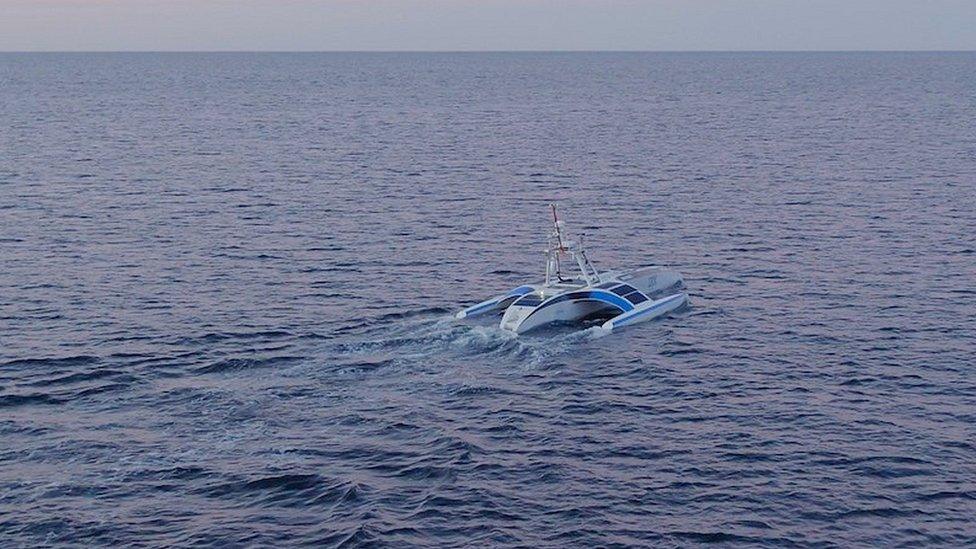
The Mayflower Autonomous Ship is in the Atlantic after a stop-over in the Isles of Scilly
The 50ft (15m) long solar-powered trimaran is capable of speeds of up to 10 knots (20km/h) and is being navigated by on-board artificial intelligence (AI).
The AI is being fed information from six cameras and 50 sensors.
It sailed from Plymouth to the Isles of Scilly on Tuesday. It set off again on Wednesday and entered international waters, bosses said.
Project director Brett Phaneuf said he was "incredibly nervous and I think I'm going to be completely tense for the next three weeks".
He said: "I know everybody in my team is feeling that same sort of knot in the pit of their stomach.
"No-one's done [this type of voyage] yet, but the weather is perfect for it."
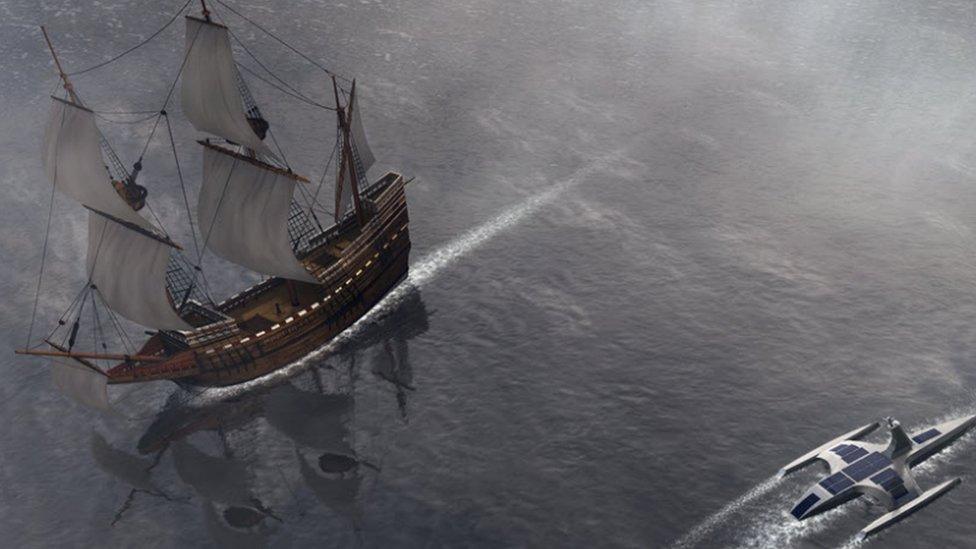
The original Mayflower was bigger and more impressive but slower and reliant on humans
The original Mayflower, a 100ft (30m) triple-masted wooden vessel with canvas sails and a top speed of three knots (6km/h), carried 102 passengers and a crew of about 30 from Plymouth to Cape Cod, Massachusetts.
The 1620 crossing took more than two months.
The 2020 version is made of aluminium composite, with a back-up diesel generator to go with its solar-powered batteries.
People can track its progress on the MAS400 website, external.

Follow BBC News South West on Twitter, external, Facebook, external and Instagram, external. Send your story ideas to spotlight@bbc.co.uk, external.
Related topics
- Published16 June 2021
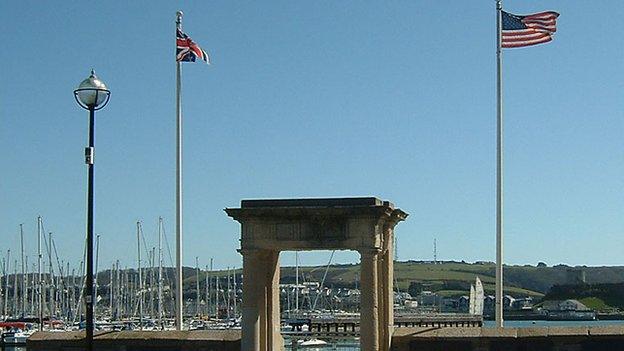
- Published17 May 2021
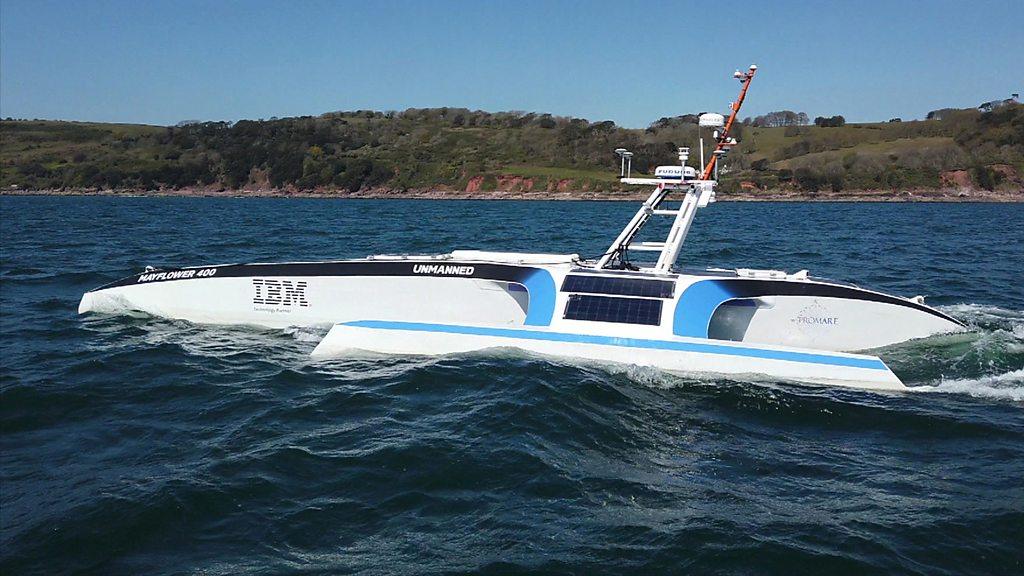
- Published16 September 2020
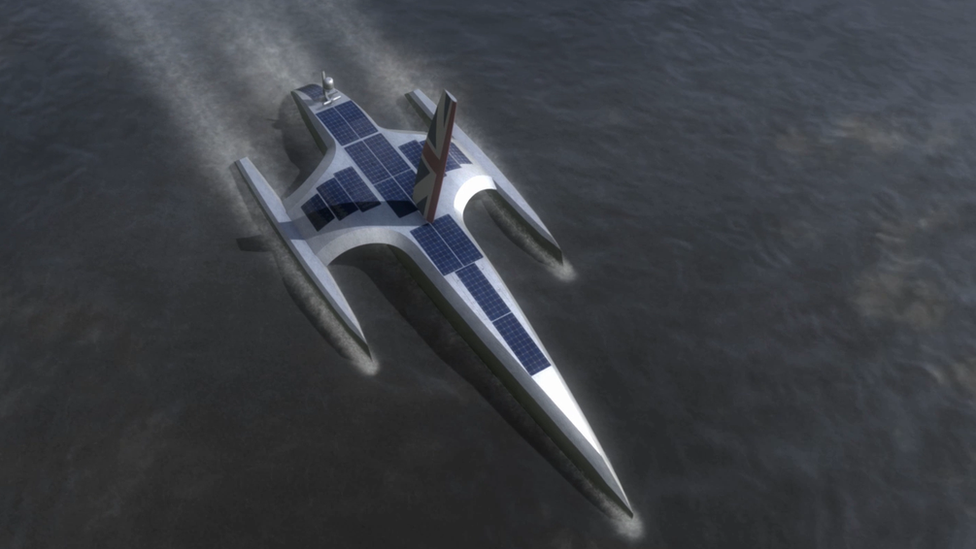
- Published16 October 2019
